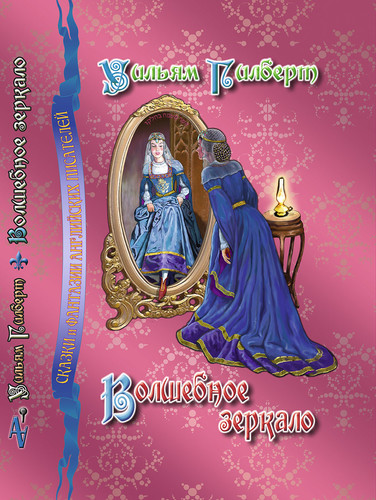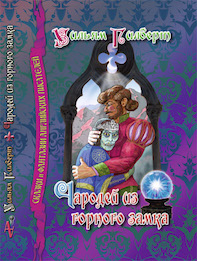ARTS & IDEAS
October 29 – November 4, 2004
Word for Word
Anna Malpas listens in as Cold War interpreters and literary translators share the secrets of their trade.
![Полоса газеты MT с началом статьи [Image]](/images/p1thumb.jpg)
Does dostatochno mean "enough" or "to some extent?" Why isn't the word "Ping-Pong" in Alexander Smirnitsky's dictionary? And when should you translate the title of an opera? These are the kind of questions that crop up — and get authoritative answers — at a Moscow club for professional translators.
Meeting once a month at the Nikolai Ostrovsky Museum,
the club is free for all comers. Regulars range from university students to
Zoya Zarubina, an interpreter to Josef Stalin and Franklin Delano Roosevelt at
the wartime Tehran and Yalta conferences. Each get-together begins with a
lecture followed by wine and socializing. Also available are the club's
magazine, Mosty, and books published by the organizer, R. Valent, which
specializes in translation manuals.
Dmitry Yermolovich, an interpreter, lexicographer and
professor at Moscow Linguistic University who spoke at a meeting earlier this
month, is open about his love for the profession. "I see everything with
the eyes of a translator," he said, recalling his experience compiling
three recently published dictionaries — one of religious and elevated
vocabulary, one for interpreters and tourist guides, and an updated version of
a Russian-English dictionary by Alexander Smimitsky from 1948 — as well as a
theoretical work on translating proper names.
Speaking with a slight American accent picked up from
a period living in the United States, Yermolovich, who has been a member of the
club since its foundation in January 2003, said that he was not worried about
lecturing to his peers. The first time he appeared before the club, though, he
teamed up with two other colleagues. "It was kind of a threesome," he
said.
While most people just use dictionaries to look up
individual words, Yermolovich admitted that he reads them like books. Assigned
to modernize Smirnitsky's dictionary, he pored over the work until he
understood the compiler inside-out as "a member of the intelligentsia of
the beginning of the 20th century who knew a lot about horses," he told
the audience.
A mine of information on equestrian diseases, the
dictionary was put together by someone who never flew in an airplane and,
rarely used the telephone, Yermolovich said. For Smimitsky, a lampa was
something that burned kerosene, and a reis was a steamer voyage, not a
flight. Other than a little "cosmetic updating" in 1983, the
reference work continued to come out unchanged until Yermolovich's new version
— 1 1/2 times longer — was published this year.
While translation might seem a peaceful pastime,
Yermolovich hinted at professional rivalry. Someone once said that he
"bakes dictionaries like pies," a reference to the fact that four
separate dictionaries under his editorship came out in the last three years.
The updated version of Smirnitsky's classic came in for criticism for its inclusion
of contemporary slang. "Our language is being spoiled by people like
that," was one of the negative comments Yermolovich heard.
![Вторая полоса статьи в MT [Image]](/images/p2_thumb.jpg) Nevertheless, Yermolovich was keen on discussing
recent changes in the Russian language, many of which stem from the Internet,
he said. It cannot but affect the lexicon when thousands of chat-room users
learn to spell words as they sound, rather than as they are written, he
explained, so that cow becomes karova instead of korova.
Spelling is going out of date, and the very core of the language is changing.
Nevertheless, Yermolovich was keen on discussing
recent changes in the Russian language, many of which stem from the Internet,
he said. It cannot but affect the lexicon when thousands of chat-room users
learn to spell words as they sound, rather than as they are written, he
explained, so that cow becomes karova instead of korova.
Spelling is going out of date, and the very core of the language is changing.
The update to Smirnitsky's dictionary includes new colloquial
expressions such as Ona vyshla na menya — literally, "She came out
on me," though it actually means, "She got in touch with me."
The word dostatochno, or "enough," has taken on the additional
meaning of "quite," so that it can be used to intensify negative
words like "ugly" and "nasty," he said. Another colloquial
addition to the dictionary is otstoi, a slang expression meaning
"junk," "trash" or "dreck," though its literal
definition is "sediment."
One audience member asked when one should translate
the title of an opera or ballet. Yes, if it's a Russian one such as "The
Nutcracker," Yermolovich said, but otherwise preferably not. Another
person asked how Yermolovich checked Smirnitsky's dictionary for
"missing" words such as "Ping-Pong" and "egg
beater." The translator did not give away all his professional secrets,
but said that he checks for antonyms of each word, and also looks for related
terms, so that if he found the name for one breed of dog, for instance, he
would check whether all the others were included.
Translators are "special people," said
Valentina Kolesnichenko, the director of R. Valent and the club's organizer,
herself an engineer by training. "It can be difficult to get along with them
... but it's very interesting." The club allows professionals to meet each
other, find work and discuss problems, she said. "We understand that we
are doing something very necessary."
Despite an abundance of high-level language skills,
the club holds its meetings in Russian, and only a couple of foreigners
regularly attend, both hailing from the United States: Lynn Visson, a United
Nations interpreter and author of several books on interpreting from Russian
into English, and Michele A. Berdy, a translator and interpreter who writes a
weekly column in The Moscow Times.
According to Berdy, the club meetings fulfill a
"great need to compare notes and talk shop," whether translators
want to discuss a badly organized conference or the nuances of a particular
phrase. While Russians can be a bit shy about asking advice from a native
English speaker, some students have begun calling her with questions.
The club is now set to move into new, permanent
premises on Podsosensky rereulok in central Moscow. In addition to monthly
meetings, it will host seminars and master classes to bring in some cash, and
there will be a kiosk selling books from R. Valent. The publisher issues an
average of four new books per year, as well as four revised versions of
previous releases. Those on sale at the most recent meeting ranged from
"A Glossary on the Euro" to "Seek and You Will Find: An
English-Russian Dictionary of Biblical Expressions for Everyone."
While the club is at present entirely non-commercial,
and gets to use its premises at the Nikolai Ostrovsky Museum for free,
expansion plans will allow the publisher to gain some profit. Kolesnichenko
hopes that the "small amounts of money" people pay for classes will
allow the company to increase the number of books it puts out.
Zarubina, one of the club's founders and its
ideologue, according to Kolesnichenko, crossed her fingers while talking about
the expansion plans. The 84-year-old interpreter secured the premises at the
Nikolai Ostrovsky Museum "just because people are nice to us, and they
know me here."
For many years the chief of the Soviet interpreting
service, Zarubina, who speaks fluent colloquial English with a British accent,
admitted that her first major postings — at the 1943 Tehran and the 1944 Yalta
conferences - came because she worked for Soviet intelligence and had security
clearance. Her father was also a Soviet agent, and she learned English while
growing up abroad. "I wasn't much of an interpreter", she says.
"In those days we had very few professional interpreters in our
country."
Her main job at the wartime conferences was to
liaise between the security services and bodyguards of the U.S. and Soviet
sides, but she did interpret for an impromptu session between Roosevelt and
Stalin at Yalta. The Soviet leader decided to go and check on his American
guest "like a good Georgian host" early one morning, when the other
interpreters were still in bed. Only Zarubina was around to help.
"Stalin asked the general questions: 'How did
you sleep? How is the accommodation?'" Zarubina remembered.
"Roosevelt said: 'Thank you very much, everything's fine. But there's a
pond in front, there's a lot of - oh, God," she paused, searching for the
word. "'Frogs, and they croak. I can't sleep.' : "I turned around to
Stalin and said, 'Iosif Vissarionovich...' I stuck. I forgot the Russian for
'frog,'" she recalled. "I said: Tosif Vissarionovich, the little
creatures that croak in the pond.'" Many years later, Zarubina still has
difficulties with the word, she said with a laugh.
For Zarubina, who teaches a course in English
communication skills at the Diplomatic Academy attached to the Foreign
Ministry, the club provides an important chance for the older generation to
meet and pass on their knowledge to students and young professionals.
Members "intermingle, they get new connections,
they find new enthusiasms, they find new ideas," she said. "We feel
that this exchange of views, this passing on experience to the younger people,
gets us enthused, too."


